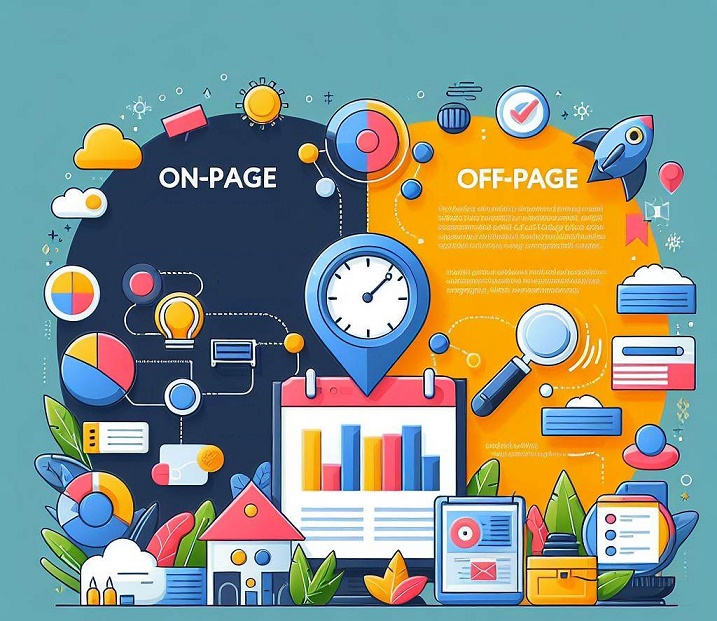On-page SEO and off-page SEO are two types of search engine optimization techniques that aim to improve the ranking and visibility of a website. On-page SEO refers to the factors that you can control on your own website, such as content quality, keyword usage, title tags, meta descriptions, headings, internal links, and page speed. Off-page SEO refers to the factors that are influenced by other websites or external sources, such as backlinks, social media, online reviews, and brand mentions.
The main difference between on-page and off-page SEO is that on-page SEO focuses on optimizing the elements of your website that are within your control, while off-page SEO focuses on increasing the authority and popularity of your website through other websites. Both types of SEO are important for achieving a high ranking in search engines, but they require different strategies and skills.
Some examples of on-page SEO techniques are:
- Publishing high-quality and relevant content that matches the search intent of your target audience
- Using descriptive and keyword-rich title tags and meta descriptions that tell search engines and users what your page is about
- Incorporating primary and secondary keywords naturally and strategically in your content, without overstuffing or keyword stuffing
- Adding schema markup, internal links, and external links to enhance your content’s structure and authority
- Optimizing your images, videos, and other media elements for speed and accessibility
- Improving your page loading time and user experience by using a fast and reliable web host, compressing your files, and using a caching plugin
Some examples of off-page SEO techniques are:
- Building high-quality and relevant backlinks from other authoritative and trustworthy websites that link to your website
- Engaging with your audience and influencers on social media platforms and encouraging them to share your content
- Creating and distributing valuable and shareable content on other platforms, such as blogs, podcasts, videos, infographics, and ebooks
- Generating positive and authentic online reviews and ratings from your customers and clients on platforms like Google My Business, Yelp, and Trustpilot
- Increasing your brand awareness and reputation by getting featured on reputable media outlets, industry publications, and online directories
If you want to learn more about the difference between on-page and off-page SEO, you can check out these resources:
- Difference Between ON Page and OFF Page SEO – GeeksforGeeks
- The Difference Between On-Page and Off-Page SEO: A Complete Guide
- Demystifying SEO | On-Page vs. Off-Page vs. Technical – ONCE Interactive
- On-Page vs Off-Page SEO: What’s the Difference? – On-Page
- On-Page vs. Off-Page SEO: Different but Equally Important – Ahrefs
Need SEO Service for Your ecommerce store contact with us

